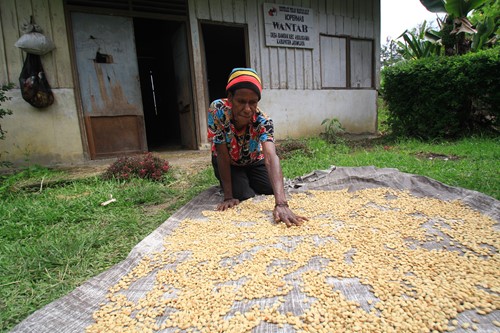Market Focus
A critical part of the GEG programme's approach was to guarantee markets for Papuan producers before they were asked to commit to a five-year journey with GEG. To this end, the GEG team sought collaboration with several companies in Indonesia, both large and small, asked for their technical support and guaranted markets by agreeing to buy the commodities and products that were produced by GEG's target communities and MSMEs.
The programme team also emphasised local Papuan markets (sago, cacao, coffee, virgin coconut oil, seaweed, nutmeg) instead of exporting to western Indonesian or overseas markets. This circulated money in the local economy while also creating more jobs and business opportunities, as well as reducing unnecessary import. GEG strived to maximise the impact and sustainability of its interventions on local economies by designing value chains that serviced domestic actors instead of external ones. The emphasis was on low volume, niche product, and high-margin markets.
Due to Papua’s challenging geography, logistical complications and additional costs often make it unrealistic for local products to compete against those from other parts of the country or region in the common commodity markets. Nonetheless, the programme’s outcome and progress cannot be captured by commodity production targets alone. GEG interventions have effectively increased the value added (e.g. product quality, process efficiency) and sustainability (improved capacity, stronger supply linkages) along the value chains, which is an important contribution to the Papuan economy.












